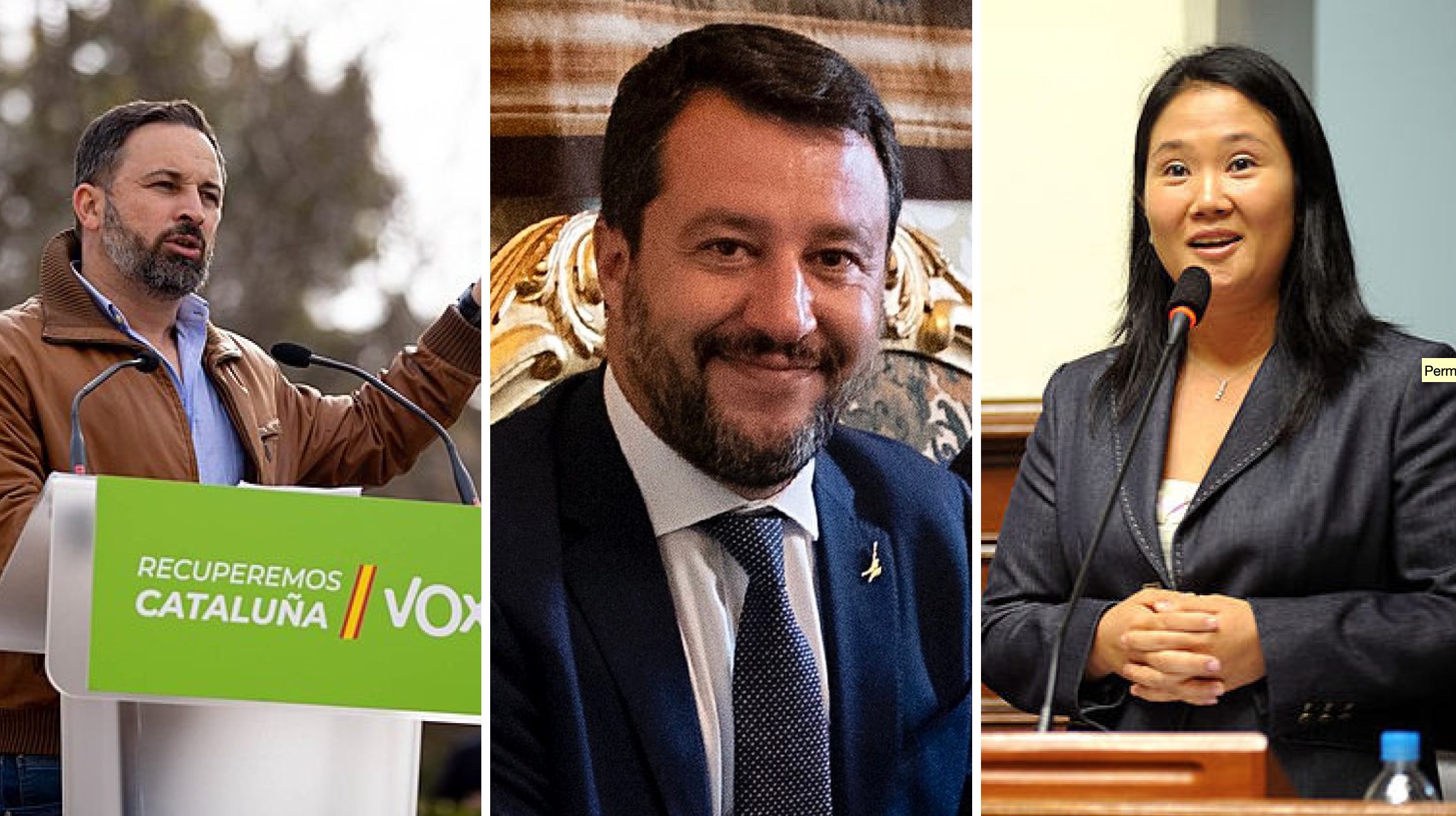A research by the Ideograma-UPF Chair concludes that far-right communication on social networks is populist, increases polarization and simplifies political discourse
A research by the Ideograma-UPF Chair concludes that far-right communication on social networks is populist, increases polarization and simplifies political discourse
A research by the Ideograma-UPF Chair concludes that far-right communication on social networks is populist, increases polarization and simplifies political discourse
The communication of the populist radical right in social networks. Analysis of the cases of Santiago Abascal on Twitter, Matteo Salvini on Instagram and Keiko Fujimori on TikTok is the title of the new report from the UPF Ideogram Chair in Political Communication and Democracy.
This report is a reduced version of the complete work, which will be published within the next few months.
The populist speech in social networks
- Santiago Abascal: the electoral campaign corresponding to the general elections of November 10, 2019.
- Matteo Salvini: the campaign relating to the elections held on March 4, 2018.
- Keiko Fujimori: the campaign that corresponds to the elections of June 6, 2021.

Abascal, Salvini and Fujimori: 3 political leaders selected.
O1: Analyze the central themes of the publications shared by politicians.
O2: Examine the elements of populist rhetoric that are present in the candidates' publications.
O3: Investigate what image each politician projects in the social network studied and determine what type of leadership they intend to convey.
O4: Study the use of audiovisual and interactive resources, as well as the argumentative function of the messages, to identify the communication strategies followed by the three politicians.
Report Conclusions
'The communication of the populist radical right in social networks' reaches the following conclusions:
- Self-referential approach in the use of the 3 social networks, by all the candidates. Either offering a presidential image, or to show closeness and naturalness.
- Abascal's speech presents the necessary characteristics to be classified as national-populist. Instead, Salvini and Fujimori are closer to populism. The first trying to rationalize and justify the populist discourse and the second, simplifying its political discourse, trivializing the content of the political debate and prioritizing spectacularization.
- Abascal is shown as the hero, with values associated with the defense of the homeland and Spanish nationalism. Salvini, for his part, opts for the profile of statesman/populist. While Fujimori enhances the humanization of her political figure to show herself as a very close candidate.
- 3 different tones. Santiago Abascal's speech seeks to polarize the debate through a critical and aggressive tone. Salvini opts for a more moderate tone. Finally, Fujimori has a friendly political discourse, breaking the distance between the political class and citizens.
Sandra Pallarés, winner of the Ideograma - UPF Chair Award..
The objective of the Ideograma - UPF Chair Award, apart from rewarding the quality of the winning work, is also to make the results of research more profitable, whether in the context of scientific production or dissemination. This report is an example of that. This collaboration will remain in force in the following editions of the Award.
You can consult the report in the following link:
REPORT: La comunicación de la derecha radical populista en redes sociales. Análisis de los casos de Santiago Abascal en Twitter, Matteo Salvini en Instagram y Keiko Fujimori en TikTok by Sandra Pallarés.